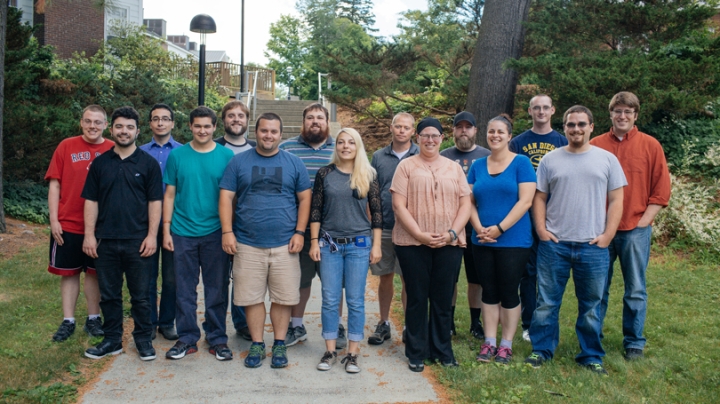“We call it a bootcamp and it is unique—truly something special,” says Heather Drinan, associate director of the Institute for Information Infrastructure Protection (I3P) at Dartmouth and principal investigator on the summer program. “We have done training before with students from other four-year colleges and universities, but never for community college students.”
Secure Information Systems Mentoring and Training, known by the acronym SISMAT, is the focus of the two-week-long, intensive, hands-on workshop. Hosted by Dartmouth’s Institute for Technology, Security, and Society (ISTS) and funded by a grant from the National Science Foundation, the camp runs from June 21-July 1.
The students come from the New Hampshire community college system: four from River Valley Community College (Claremont), three from Nashua Community College, one from Lakes Region Community College (Laconia), and five from NHTI, Concord’s Community College.
“SISMAT was conceived to bring some of our Dartmouth magic to people who didn’t have cybersecurity resources at their home institutions,” says ISTS Director Sean Smith.
“Spending 24 hours a day at Dartmouth in the company of their peers deepens the experiential character of the camp,” Drinan says. “At the community colleges, the students are commuters.”
Michael Locasto, a senior computer scientist with SRI International, a nonprofit, independent research center serving government and industry, is conducting most of the training. Locasto, a former Dartmouth postdoc, has taught many similar programs at Dartmouth. He also has help from industry and academic experts who are teaching about cryptography, network security, and other topics.
“The students will be engaged in activities aimed at getting them to understand what software programs are actually ‘doing’ on a computer,” says Locasto. “Many of us don't really know how to go about examining the actual executing of computer code and the effects and impacts it is having on the machine and your data. Doing this requires peering beneath the hood of the computer with commonly available tools like debuggers, but even then there is a massive amount of information that students need to develop an intuition for—what is important and what isn't.”


